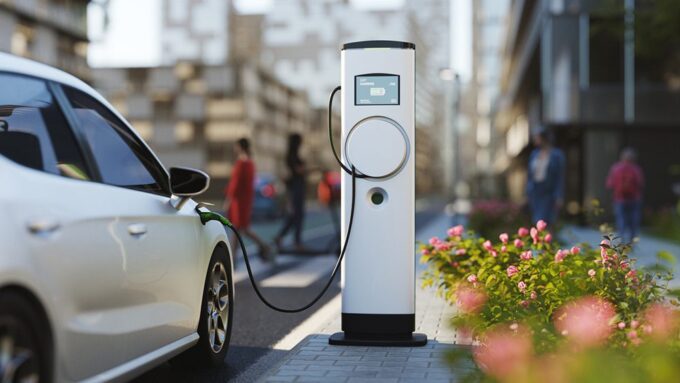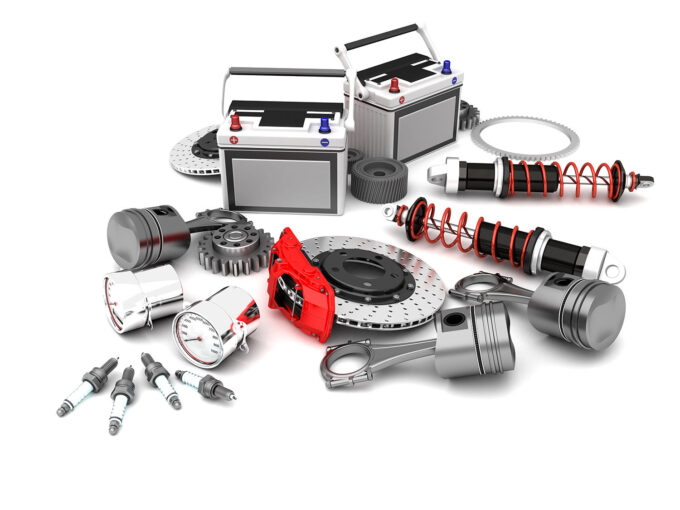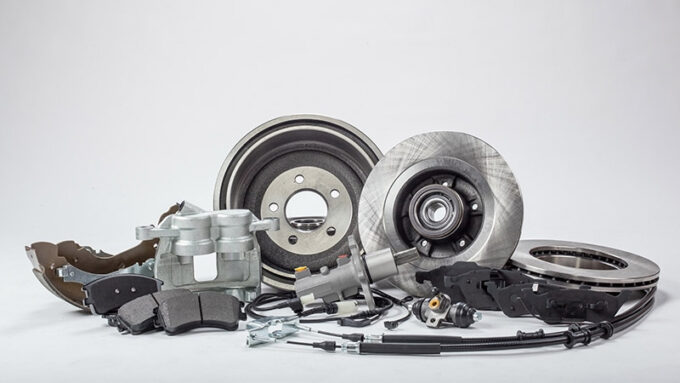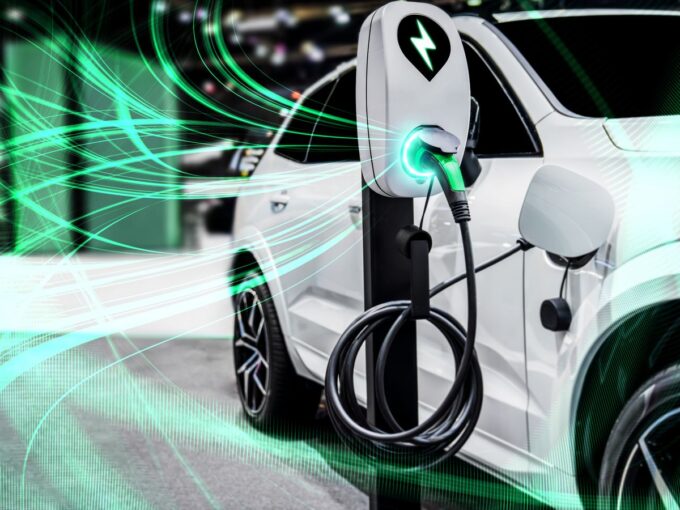In the race towards a sustainable future, cutting-edge car technologies play a pivotal role in decarbonization and accelerating the global energy transition.
Electric vehicles (EVs) are at the forefront, reducing carbon emissions and dependence on fossil fuels.
However, maintaining genuine car parts is crucial to ensure these advancements deliver their full potential. Genuine parts not only enhance performance but also contribute to the longevity of eco-friendly vehicles.
For a seamless transition to sustainable mobility, prioritize genuine car parts supply, a reliable source for authentic components at https://sts-global.com/car-parts.
Decarbonization Through Electric Mobility

At the forefront of the green revolution are electric vehicles (EVs), a groundbreaking technological leap aimed at reducing carbon emissions and mitigating the environmental impact of traditional combustion engines.
EVs utilize electric power, cutting down on greenhouse gas emissions and diminishing the reliance on finite fossil fuel resources. This shift is not merely an automotive trend but a fundamental change that has profound implications for global energy consumption and environmental conservation.
As governments worldwide implement policies to encourage the adoption of EVs, major automakers are investing heavily in research and development to enhance battery efficiency, increase range, and accelerate charging capabilities.
The goal is to make EVs not just an environmentally conscious choice but a practical and appealing one for consumers. Cutting-edge battery technologies, such as solid-state batteries and advancements in lithium-ion batteries, are key players in making EVs more accessible and efficient.
Environmental Benefits of Electric Vehicles (EVs)
In the quest for sustainable transportation and a greener future, electric vehicles (EVs) emerge as powerful advocates for environmental conservation, offering a multitude of advantages that extend well beyond the realm of reduced carbon emissions.
Reduced Air Pollution

Traditional internal combustion engine vehicles release harmful pollutants like nitrogen oxides (NOx) and particulate matter into the atmosphere, contributing to air pollution and posing health risks, particularly in urban areas. In stark contrast, EVs stand as beacons of clean mobility, producing zero tailpipe emissions.
This inherent characteristic not only enhances air quality in densely populated regions but also significantly reduces the health hazards associated with vehicular pollution.
Potential for Renewable Energy Synergy
One of the most promising aspects of EVs lies in their compatibility with renewable energy sources. As the world accelerates its shift towards sustainable energy production, the synergy between EVs and renewables becomes increasingly apparent.
EVs have the capacity to serve as energy storage units, allowing surplus energy generated from sources like solar panels to be efficiently stored in EV batteries.
Subsequently, this stored energy can be utilized to power homes or even returned to the grid, fostering a bi-directional energy flow. Such synergy not only contributes to a more stable and sustainable energy ecosystem but also bolsters the resilience of our energy infrastructure.
Electric vehicles inherently exhibit higher energy efficiency compared to traditional combustion engine vehicles. They excel in converting a greater percentage of the energy from their power source into actual motion.
This results in significantly reduced energy wastage, translating into heightened overall efficiency throughout their lifecycle. Embracing these environmental benefits of electric vehicles and advocating for responsible EV lifecycle management represents a collective commitment towards a sustainable future.
It is a future that seamlessly integrates technological innovation and ecological mindfulness, forming the cornerstone of our ongoing journey towards a more sustainable and environmentally harmonious world.
Energy Transition Acceleration
The rapid evolution of car technology is intricately linked to the broader context of energy transition. As the world strives to shift towards renewable energy sources, the automotive industry is embracing innovations that align with these goals.
Vehicle-to-Grid (V2G) technology, for example, enables electric vehicles to not only draw power from the grid but also feed surplus energy back into it. This bidirectional flow of energy facilitates a more dynamic and sustainable energy ecosystem.
Furthermore, hydrogen fuel cell technology is gaining traction as a clean energy solution for vehicles. Hydrogen-powered cars emit only water vapor, offering a promising alternative to traditional internal combustion engines.
This technology holds particular significance in heavy-duty transportation, where battery-electric solutions face challenges related to weight and range.
The Crucial Role of Genuine Parts

While the shift to sustainable mobility is undeniably exciting, the importance of genuine car parts maintenance should not be underestimated.
Authentic components are not only critical for the optimal performance of vehicles but also for ensuring their longevity and efficiency.
Genuine parts are designed to meet the specific engineering standards of the vehicle, providing a level of reliability and safety that aftermarket alternatives may not guarantee.
Regular maintenance using genuine parts becomes even more significant in the context of electric and hybrid vehicles.
These cutting-edge vehicles rely on intricate systems and precise engineering, making the use of authentic components paramount for preserving their integrity. From batteries to electric motors, each component plays a crucial role, and the use of genuine parts ensures seamless integration and optimal functioning.
Navigating the Genuine Car Parts Landscape

In the pursuit of preserving and optimizing your vehicle’s performance, the choice of a trustworthy source for authentic car parts becomes paramount.
Accessing a diverse inventory of genuine components ensures that your vehicle is equipped with precisely what it needs for peak functionality. The commitment to quality and authenticity in this domain aligns seamlessly with the broader goals of fostering a sustainable automotive future.
Opting for genuine parts not only enhances your vehicle’s efficiency and lifespan but also contributes to a collective vision of a greener, more sustainable world.
As the automotive industry progresses, the integration of cutting-edge technologies, the promotion of sustainable mobility, and the emphasis on genuine car parts maintenance collectively lay the groundwork for a more environmentally conscious future.
Developments in electric vehicles, energy transition initiatives, and a steadfast commitment to authentic components signal a paradigm shift transcending the automotive sector, shaping a global trajectory toward a sustainable tomorrow.
Embracing these advancements and making informed choices ensures a positive contribution to this transformative journey, propelling society towards a future that seamlessly intertwines innovation and sustainability.
The conscientious selection of authentic car parts not only ensures the continued reliability of individual vehicles but also aligns with a collective responsibility to reduce the environmental footprint of the automotive industry.
By prioritizing genuine components, we actively participate in steering the course toward a future where vehicular excellence coexists harmoniously with ecological mindfulness.
To Summarize
As the automotive sector undergoes continuous development, the incorporation of state-of-the-art technologies, the advocacy for sustainable transportation, and the emphasis on maintaining authentic car parts all contribute to forging a more ecologically friendly future.
The rise of electric vehicles, initiatives for transitioning to cleaner energy sources, and the dedication to using genuine components underscore a fundamental change that extends beyond the automotive industry’s borders.
This shift significantly impacts the worldwide path towards a sustainable future. Embracing these advancements and making well-informed decisions guarantees our positive contribution to this transformative process, propelling us toward a future where both innovation and sustainability harmoniously coexist.

